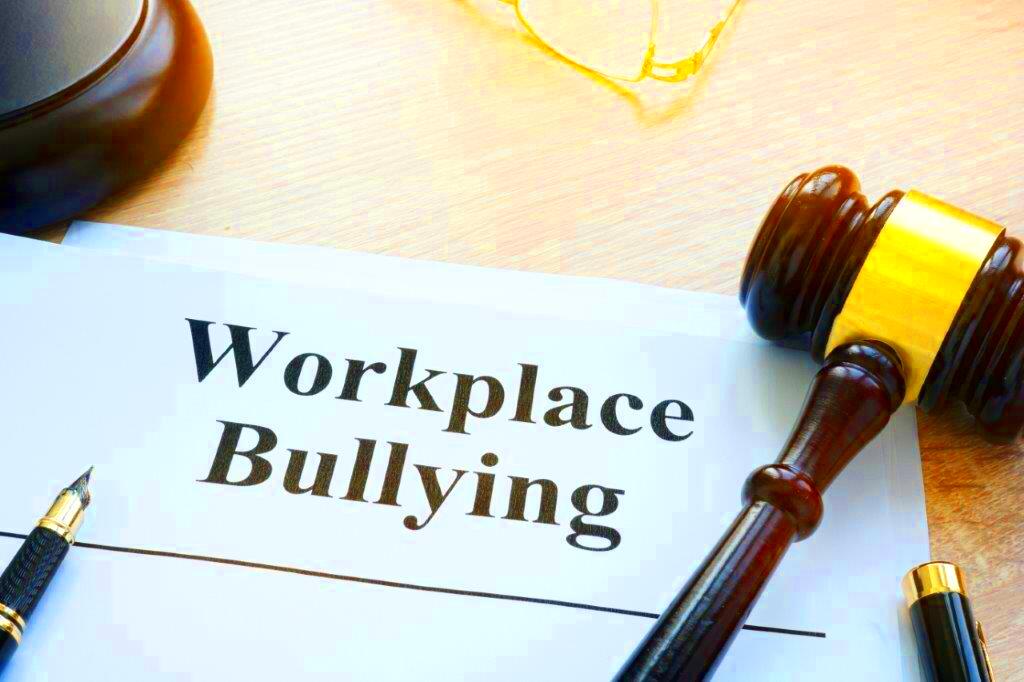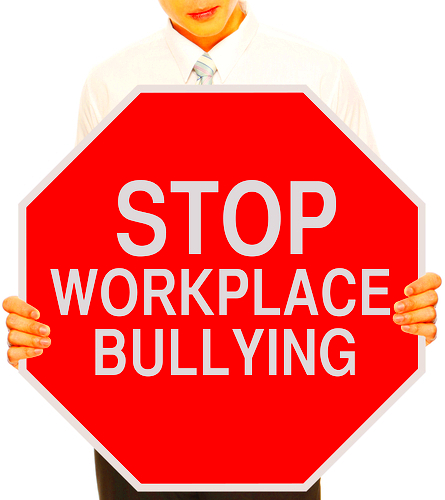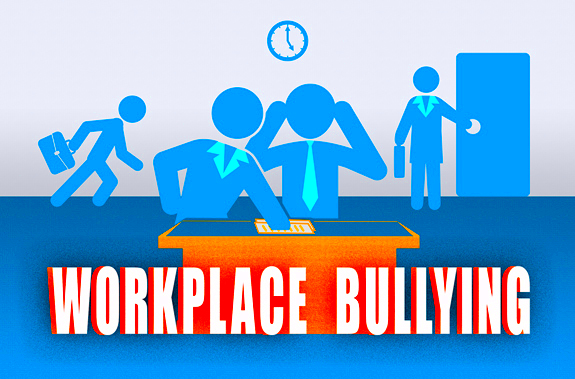Colorado Workplace Bullying Laws and Protecting Employees
Workplace bullying is a serious issue that affects many employees across various industries. In Colorado, this problem is taken seriously, and there are laws in place to protect workers. But what exactly is workplace bullying? It generally involves repeated, unreasonable behavior directed at an employee, which can lead to physical or emotional harm. Recognizing these behaviors is crucial for creating a safer work environment.
Workplace bullying can manifest in many forms, including:
- Verbal abuse or insults
- Spreading malicious rumors
- Excessive criticism
- Isolation from coworkers
- Undermining a person’s work or reputation
Understanding workplace bullying helps employees recognize their rights and take appropriate actions if they find themselves in such situations.
Legal Definition of Workplace Bullying

In Colorado, there is no specific law that explicitly defines workplace bullying. However, various behaviors associated with bullying can fall under existing laws related to harassment or discrimination. Generally, workplace bullying refers to repeated mistreatment that can include:
- Threatening behavior
- Intimidation
- Humiliation
- Work interference
To be considered bullying, the behavior must be intentional and persistent. Unlike one-time incidents, bullying occurs repeatedly over time, creating a hostile work environment. It’s important to note that while bullying itself may not be illegal, it can lead to legal issues if it intersects with harassment laws, such as when it is based on race, gender, or other protected characteristics.
Overview of Colorado Laws on Workplace Bullying

Colorado does not have a specific law that addresses workplace bullying directly. However, various state and federal laws protect employees from harassment and discrimination that can arise from bullying behaviors. Here are some key points to understand:
- Colorado Anti-Discrimination Act (CADA): This law prohibits discrimination based on characteristics like race, color, sex, and age.
- Federal Laws: Title VII of the Civil Rights Act and the Americans with Disabilities Act protect employees from workplace harassment based on protected characteristics.
- Workers’ Compensation: Employees may seek compensation for emotional distress if they can prove the bullying led to a medical condition.
While there is no standalone workplace bullying law, Colorado recognizes that such behaviors can contribute to a hostile work environment and can intersect with existing anti-discrimination laws. Therefore, it is essential for employees to be aware of their rights and the legal frameworks that can help them address bullying effectively.
Employee Rights Under Colorado Law

In Colorado, employees have specific rights when it comes to workplace bullying, even though there is no dedicated law addressing it. Understanding these rights is essential for employees who may face bullying behaviors. Employees are entitled to a work environment that is free from harassment, intimidation, and discrimination. Here are some key rights employees should know:
- The Right to a Safe Work Environment: Employees have the right to work in an environment that does not pose a risk to their mental or physical well-being.
- The Right to Report Bullying: Employees can report any incidents of bullying without fear of retaliation. Employers are legally required to address complaints.
- The Right to Take Action: Employees can seek legal recourse if they experience bullying that violates state or federal laws.
- The Right to Seek Support: Employees can access resources such as counseling and support groups to help them cope with bullying.
Knowing these rights empowers employees to stand up against workplace bullying and seek help if needed. They should feel encouraged to report incidents and know that they have protections under Colorado law.
Reporting Workplace Bullying in Colorado

If you are experiencing workplace bullying in Colorado, it’s crucial to know how to report it effectively. Reporting is the first step in addressing the issue and taking back control of your work environment. Here’s a simple guide on how to report workplace bullying:
- Document Everything: Keep a detailed record of bullying incidents, including dates, times, witnesses, and descriptions of events.
- Review Company Policies: Familiarize yourself with your employer’s policies on workplace bullying and harassment.
- Report to Your Supervisor: Approach your direct supervisor or HR department to discuss the issue. Be clear and concise about what has been happening.
- File a Formal Complaint: If the bullying continues or your supervisor does not take action, you may need to file a formal complaint with HR.
- Seek External Help: If internal reporting does not resolve the issue, consider contacting an attorney or filing a complaint with state or federal agencies.
Reporting workplace bullying is a vital step in reclaiming a safe and respectful work environment. Remember, you are not alone, and there are resources available to help you.
Employers’ Responsibilities to Prevent Bullying
Employers in Colorado have a legal and moral responsibility to create a safe work environment free from bullying. This involves implementing policies and practices that prevent workplace bullying and address it effectively if it occurs. Here are some key responsibilities employers should uphold:
- Establish Clear Policies: Employers should develop and communicate a clear anti-bullying policy that outlines what constitutes bullying and the consequences for such behavior.
- Training and Education: Regular training sessions should be conducted to educate employees and management about bullying, its effects, and how to prevent it.
- Encourage Reporting: Employers must foster an environment where employees feel safe to report bullying without fear of retaliation.
- Investigate Complaints Promptly: Any reported incidents of bullying should be investigated thoroughly and promptly to ensure appropriate actions are taken.
- Implement Support Systems: Providing support resources such as counseling services can help employees cope with the effects of bullying.
By taking these responsibilities seriously, employers can create a workplace culture that not only discourages bullying but also promotes respect and collaboration among employees.
Legal Remedies for Victims of Workplace Bullying
For those who experience workplace bullying, it’s essential to know that there are legal remedies available, even if specific laws addressing bullying don’t exist in Colorado. Victims can pursue various options based on the nature of the bullying and the impact it has had on their lives. Here are some potential legal remedies:
- Filing a Complaint: Victims may file a complaint with the Equal Employment Opportunity Commission (EEOC) or the Colorado Civil Rights Division if the bullying involves discrimination based on protected characteristics such as race, gender, or disability.
- Seeking Damages: If the bullying leads to emotional distress or mental health issues, victims can potentially sue for damages in civil court. This could cover therapy costs, lost wages, and pain and suffering.
- Workers’ Compensation Claims: If workplace bullying results in a mental health condition, employees may be eligible to file a workers’ compensation claim to cover medical expenses and lost wages.
- Negotiating Settlements: Many cases are settled out of court. Victims can negotiate with their employers for compensation or other remedies.
While seeking legal remedies can be challenging, knowing the options available empowers victims to take action. Consulting with a lawyer experienced in employment law can provide guidance tailored to individual situations.
Steps to Take If You Experience Workplace Bullying
Experiencing workplace bullying can be distressing, but there are practical steps you can take to address the situation and protect yourself. Here’s a simple guide to help you navigate through this challenging time:
- Recognize the Signs: Understanding what constitutes bullying is the first step. Look for patterns of behavior, such as constant criticism or social isolation.
- Document Incidents: Keep a detailed record of bullying incidents. Write down dates, times, what was said or done, and any witnesses present. This documentation can be crucial if you decide to report the bullying.
- Seek Support: Talk to trusted coworkers, friends, or family about what you’re experiencing. Sometimes, having a support system can help you feel less isolated.
- Report the Bullying: Follow your company’s procedures for reporting workplace bullying. This may involve speaking to your supervisor or HR department.
- Consider Professional Help: If the bullying is affecting your mental health, consider seeking help from a counselor or therapist who can provide support and coping strategies.
Taking these steps can help you regain control over your situation and start the healing process. Remember, you have the right to a safe and respectful workplace.
Frequently Asked Questions
Here are some common questions about workplace bullying in Colorado, along with their answers to help clarify important points:
- What is workplace bullying? Workplace bullying refers to repeated, unreasonable behavior directed at an employee that can cause emotional or physical harm.
- Is workplace bullying illegal in Colorado? While there is no specific law against workplace bullying, certain behaviors may violate existing harassment or discrimination laws.
- What should I do if I witness bullying? If you see bullying happening, document what you observe and consider reporting it to HR or your supervisor.
- Can I sue my employer for workplace bullying? You may have legal options if the bullying violates laws related to harassment or discrimination. Consulting an attorney can help clarify your options.
- What resources are available for victims? Victims of workplace bullying can access support groups, counseling services, and legal advice to help them cope and take action.
If you have more questions or need further information, reaching out to a legal professional or a workplace support organization can provide you with the guidance you need.
Conclusion
In summary, workplace bullying is a significant issue that affects employees’ mental and emotional well-being. While Colorado does not have specific laws targeting workplace bullying, there are existing laws and resources available to protect employees from harassment and discrimination. Understanding your rights and the responsibilities of employers is crucial for creating a safe work environment. If you experience or witness bullying, it is essential to take proactive steps, including reporting the behavior and seeking legal remedies if necessary. Remember, no one should endure a hostile work environment, and there are avenues for support and resolution. By standing up against workplace bullying, you contribute to fostering a healthier workplace culture for everyone.


